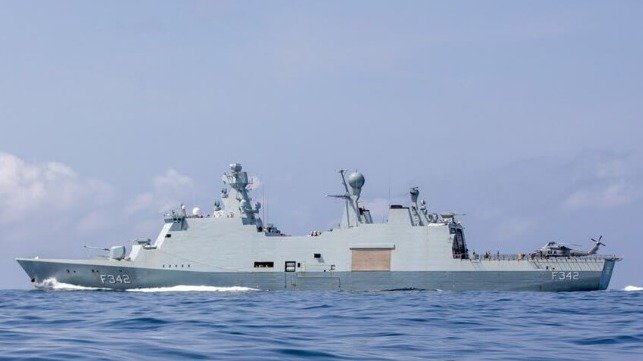A Danish frigate has killed four pirates in waters south of Nigeria in an operation to protect shipping in the Gulf of Guinea, the Danish military said on Thursday.
The Esbern Snare, deployed last month to the Gulf of Guinea amid heightened security risks from pirates, on Wednesday “spotted a fast-moving vessel carrying eight suspected pirates near a number of commercial ships,” The Danish military said.
The incident took place in international waters, 25 to 30 nautical miles south of Nigeria’s territorial boundary, a spokesman said.
Detection & Action
The motorboat, spotted by a helicopter deployed by the frigate, was carrying equipment associated with piracy, including ladders.
After the frigate fired warning shots, the pirates opened fire on Danish Navy Special Forces, who in turn shot and killed four pirates and wounded one, the Danish military said in a statement.
The remaining four pirates were taken on board the frigate, and no Danish personnel were hurt in the incident, the military said.
It was the first time the frigate had opened fire during its current mission to the Gulf of Guinea, the spokesman said.
The Gulf of Guinea has been a piracy hot spot for years, but incidents have decreased since national authorities stepped up security efforts aided by foreign naval ships.
American, British, Italian, Spanish and Portuguese navies have also sent assistance, ships or training forces over the past year to tackle piracy after a record 130 sailors were taken from vessels in the region in 2020.
Piracy and armed robbery incidents dropped to 28 in the first nine months of 2021, compared with 46 in the same period in 2020, according to the International Maritime Bureau.
Separately, Denmark’s Prime Minister Mette Frederiksen and opposition lawmaker Jakob Elleman had both planned to visit the frigate during a visit to Ghana on Wednesday and Thursday.
They were not on board during the incident, which Frederiksen said was likely to have averted attacks on commercial ships in the gulf.
The frigate will operate in the region until April 2022.


































































